- Home
- Leslie North
Fearless (The Solomon Brothers Series Book 3) Page 6
Fearless (The Solomon Brothers Series Book 3) Read online
Page 6
“Wait…what?”
7
Roosevelt was already gone, threaded through a picket line to the apex of the bridge where a sea of concerned citizens sat cross-legged, elbows linked. Henry hotfooted after him, but his mental brakes smoked. He wasn’t prepared to see Maggie, not after the previous night when they closed in around the bag and he had almost kissed her, not after the day at the dry cleaner and the Mom says hello and the secret that made Henry, beyond the fighting and pacifist bullshit, quite possibly the most unforgivable person in the eyes of Margaret Kavanaugh.
And there she was, part of the sit-in. Maggie. Arms linked, buttons with loud, angry words adorning her vest front, and a ridiculous foam hat that looked more like a football goal posts than a section of a suspension bridge. Her expression transformed when she spotted Roosevelt, much like the sunrise transformed the sky. He expected her smile, the gleam in her eyes, her entire countenance to fade when she saw him.
It didn’t.
She asked the people beside her to scooch and make room. Roosevelt and Henry bookended her. More like crowded. Actually, passing a strand of dental floss between them might have been difficult. Still, Henry couldn’t say he minded it. Her closeness warmed him; her animated body language awakened him.
“I thought you’d be climbing Rising Main à la Rocky Balboa this morning.”
Was that a flirt he detected? A toss of red waves over her shoulder? A jaunty little smile? A shoulder nudge? It sure as hell seemed to add up to a flirt. Maybe it was just a sexy-as-hell trait to be here, to be passionate about something, a foreshadowing of things to come, a carnal energy when a woman like Maggie focused her attentions on any one thing. The effect, he imagined, was nearly debilitating.
“Right state, wrong city.” Still, that she knew the boxing reference squeezed his insides. Maybe the woman wasn’t so far left that she couldn’t meet somewhere on the spectrum of tolerance. “Shouldn’t you be writing letters to editors?”
“I’m teaching Roosevelt a first-hand lesson on freedom of speech and freedom of assembly. Plus, it’s kind of in my blood. My parents had me marching picket lines as soon as I was old enough to walk. There’s an allure to taking on the elite, reminding them who and what’s important, having a common place to air grievances.”
“And how many of these people fall into that idealistic category?”
“What do you mean?”
“I’m just saying. Some are here for the bridge. Some are here for the network news cameras over there. Some are lonely and probably had nothing better to do this morning.” Henry encircled his upraised knees in his arms and nodded upward to two people who had tied themselves to the crisscrossed steel infrastructure, a Save Our Bridge banner hung between them. “Take those two freaks up there for example. Why aren’t they down here with everyone else? Their entire identities are probably wrapped up in chasing something that will make them feel worthy because they can’t find purpose on their own.”
“And what if this bridge means something to them? What if he proposed to her beneath the northern portal because that’s where he first saw her and fell in love and to lose this bridge meant to lose a piece of their history?”
“Now you’re just making up shit to justify civil disobedience.”
“Nineteen-ninety-one. Finish line of the River City Run marathon. He gave her a cup of water. She gave him her heart.”
“You know them?”
“My parents.” Maggie waved. The woman strapped to the girder waved back.
Henry mentally folded on himself—far more than the physical, cramped fold he had going on. Foot. In. Mouth. What had he called them? Freaks? He was relieved he hadn’t swung for the rafters and called them full-on nut jobs.
“Still married, huh?” he asked.
“Freakishly.”
Henry smiled, took the jab.
“Thing is, they don’t always see things the same. One may believe strongly in something the other doesn’t care much about. But they’re always there to support each other, no matter what.”
“And you want that?”
“Who doesn’t?”
“I’d never strap myself to a bridge for anyone. Just saying.”
“Yet you’d go a few rounds for someone you loved?”
“Hell yeah. Who wouldn’t?”
Maggie shrugged and looked up. “Just consider them on round twenty-five.”
Henry liked this. Not at each other’s throats, the quiet alternative to a verbal cage match where no one gave an inch, a truce of sorts. He tipped his face to the sky and savored a lazy pull of the damp, morning air.
“They weren’t always like this.” Maggie squinted up, into the morning sun. “This hard-core.”
“Yeah?”
“They radicalized when my uncle became the victim of a violent attack on the streets.”
Henry should have known, should have been prepared. As it was, her words hit him like a roundhouse to the jaw, nearly a cold knockout. He struggled for breath, looked away. A fuzzy-haired old woman next to him gave him an odd look.
“Kid got off because he was underage,” said Maggie. “Community service, some injustice. I was nine. My parents moved us to a peace commune northeast of here for a while, but after a while they decided to move back, to give their city a voice, to stop the injustice. They’ve been climbing bridges ever since.”
Bwhoop-Bwhoop.
A police car crept along the bridge’s roadway, the siren’s double-shot warning a not-so-subtle cue to clear the bridge. Henry felt sick. Dizzying red and blue flashers spiraled around him. Not a day went by he hadn’t thought of Caliban, but he hadn’t even considered that Caliban was someone’s brother, someone’s uncle. Henry had sentenced a nine-year-old Maggie to a fucking peace commune because her parents deemed the world too unsafe for her.
Maggie sent Roosevelt ahead. Too much at stake, she said. Something like that. He wasn’t entirely sure because the world, the peace he had found that morning, was gone and nothing made much sense anymore. The crush of people leaving the demonstration was intense. Henry found himself simultaneously protecting Maggie and trying not to throw up when she looked at him with concerned eyes; he had been the one she needed protection from all those years ago.
“Are you okay?” she asked.
He manufactured a response. “Fine.” He felt less than fine.
Maggie turned around, walked backward, her eyes on the scaffolding above the bridge. “Good. Because I may need a ride to the police station. My car’s in the shop.”
Henry glanced back in time to see Maggie’s parents climbing down into the waiting arms of the law. Maggie’s hat, the whole situation—it was all so absurd. How had he gotten from a morning run with Roosevelt to cozying up to Caliban’s family? He settled on a long walk back to the gym to fetch his car and a drive to the precinct. That was all. In less than a week, Maggie had agreed to steer clear of the gym, his life. In less than a week, she would move on with her numerous crusades, never knowing he had once been public enemy number one.
Henry insisted on waiting outside the station. Family privacy, he said. Maggie couldn’t help thinking it was more. When they pulled up, he had stared at the building as if he expected a Pandora’s box of zombies—or worse, glory-seeking, bored activists—to spill from its glass and steel doors. Maggie never assumed Henry would become a friend, didn’t want a violent fighter as one, really. But she did hope their time on the bridge would help him look at her with a greater understanding for why she was the way she was. Why she sometimes turned people off. Mostly, now, he didn’t even look at her.
Maggie thanked him for the ride and bid him goodbye. She told him she could call a cab home; she didn’t expect him to wait out what could be a long ordeal. Her parents never made these altercations simple. They always made sure to tell everyone on their way out of the holding tank—civil servant and private citizen alike—about whatever cause had landed them there. Maggie’s savings consisted of the last thousand she had liquidated from h
er teacher’s retirement account—which hadn’t been much over five years. She had put the remainder of it toward things the kids under her care needed—school supplies, shoes that kept out the snow, a nice suit. Her parents were never ones to save much.
“I make less now than I did as a teacher, Ma.” Maggie said while her parents scooped their personal effects from two trays at the booking desk. “You can’t keep calling me to bail you both out.”
Her father padded up beside her and kissed her cheek. “That’s materialism talking, sweetheart. Besides, we’ll pay you back. Always do.”
Though she appreciated the gesture, he brought the fishy stench of the Monongahela and a stale jail cell with him. “Tell that to my stomach when it’s growling.”
As usual, her mother tossed in her two cents. “She’s just sore, Oliver, because she’s regretting her decision to leave the schools.”
“The true battle lines for the future, for sure,” said her father.
Maggie rolled her eyes. She could not have this discussion again. Her namesake, Margaret Fuller, was a social advocate for women’s education in the early 1800s. Fuller’s advocacy provided inspiration for Walt Whitman and Elizabeth Barrett Browning and Nathaniel Hawthorne among others—a rather ambitious legacy for Maggie to follow. Maggie’s parents had been educators when they weren’t married to the gypsy, hippie mentality. Political science, mostly. Debate. And if there had been a high school course on passive aggressive manipulation, they would have helmed it.
“I’ve been mentoring a boy named Roosevelt.” Maggie attempted to put a positive spin on the regret her parents forecasted. They exited the police station. The street crowded—no buffering steps, not much of a sidewalk. They paused. Traffic whizzed by on the main thoroughfare, churning the air around Maggie’s body.
“Good name, that one,” said her father.
“He’s gifted. Poised to design and build bridges that challenge convention.”
“He the young man with you on the bridge?”
“Yes.”
“The one with all those tattoos?” Her mother’s voice had its own emergency response pitch.
“No, darling,” said her father. Then he turned to Maggie. “That wasn’t him, was it?”
“No.”
Her mother gave an exaggerated sigh. “Good. That other one looked like a radical. All that ink. All those muscles.”
Maggie was already on the defensive, always seeking out a place to stand her ground with her parents. She’d spent her first twenty-five years trying to please them about everything. And failing. Her latest sport was taking her mother up on her advice to challenge the status quo.
“He’s my friend.” Even though he wasn’t. Not really.
“Oh, honey.” Her mother tsk-ed. “It must be lonely, cooped up in that huge Victorian house with nothing but troubled youth all the time. You should come to the rally tomorrow outside the coliseum just before the circus. Those animal-rights men can be very sensitive. Make for good companions.”
“Henry’s not that bad. He helps out inner city youth, like I do.”
“What?” said Ma. “Teaching them how to be hooligans?”
“Stop judging him based on his tattoos.” The hypocritical statement felt like a glob of sticky taffy on her tongue. Hadn’t she done the same when she met Henry? “You always tell me not to judge people and here you are judging someone you’ve never met.”
“So hostile.” Her mother’s hostile on her New Jersey-rooted accent came out more like haw-style.
As ever, her father was the voice of reason. Zen-like. Not prone to the hysterics of her mother. “You’re right, sweetheart. We’d love to meet your friend, Henry. What does he do?”
Wait, what? Meet him? Her father was close, like he so often got, no space bubble, his nose tipped up so he could focus inside his squat eyeglasses. She always had a hard time lying when his proximity was a force in itself. His prematurely gray hair sprouted wildly from his beard and sideburns.
A city bus pulled up nearby. Passengers in the windows shared their vacant stares. She was starting to feel like a caged animal at the circus, on display for the passersby to gawk at.
“He runs a gym.”
“What kind of gym? Jungle gym? After school day care? Physical therapy, what?” Her father’s roots were showing now. Long Island.
“Just a gym. He took over after his mentor passed away.”
Her father squeezed her in his stare. Lines at his brow crinkled. “There’s something you’re not telling me.” Then he turned to Ma. “There’s something she’s not telling us. She gets this twitch in her left eyelid when she’s not being truthful.”
Maggie hadn’t noticed the involuntary muscle spasm until her father mentioned it. The bus’s hydraulic brakes fired and the engine revolutions assaulted her brain. The bus pulled away from the curb. She waited until the loud annoyance faded.
“I’m right here, you know. I can hear you.” She felt cornered. There was only one way to back off a pair of social crusaders. Her pair of social crusaders. Shock and awe. “He’s a mixed martial arts champion.”
“Aw, honey.” As if she had said he was Protestant. Or a blind barber. The disappointment in her mother’s tone was acute. “I knew it. No one’s built like that who doesn’t intend to use it like a weapon. You’re coming with us tomorrow. Meet you a nice PETA guy.”
“I’m not going with you tomorrow,” Maggie asserted.
“She’ll be with Henry, the mixed martial arts champion.” Her father tossed up his hands and shuffled along the sidewalk.
Maggie glanced beyond him. Henry waited on the next block, arms and ankles crossed. His backside leaned against the driver’s side door of his pea-green 1965 classic Chevy pickup. Sol’s truck, Henry had told her on the way over.
She had never seen a sight more beautiful. Except maybe the glassy green of Henry’s eyes in the first morning rays as he sat beside her on the bridge. A smile reshaped her lips.
One of his hands raised in a down-low wave that hit her straight in her solar plexus. No smile, but he had waited for her.
“I’m leaving now.”
“I’ll pick you up at six am,” said her mother from behind.
“Don’t bother.” She tossed a half-hearted kiss past her shoulder. “Love you both.”
Before she jaywalked, her first real offense in the presence of Lawless Lorenz, in front of the police station, no less, she thought she heard her mother’s siren-like Jersey accent say, “Jesus, Mary, and Joseph, would you look at that? He’s going to crush her.”
Maggie wasn’t sure to what Ma was referring—Henry’s thick neck, his enormous hands, his fighter’s mentality. But Jesus, Mary, and Joseph, help her. In most of her fantasies now, Maggie held onto that very hope.
They drove for six city blocks before Henry pulled into a delivery lane, shifted the old truck into park, and shifted on the seat beside her. She had ambushed his ears the entire distance from the police station—she knew it—the whole haven’t taken a breath in three sentences thing Henry had already pointed out about her. He heard more about her struggles with wanting to please her parents but needing to find her own identity than any one person should have to. Except maybe her parents themselves. Eventually.
“Man, you are intense.”
Heat rose to her cheeks. She attempted an inhale. It was shaky at best.
He sat sideways, his knee resting on the bench seat, his well-defined and colorful arm propped on the seat back. “Close your eyes.”
“What?”
“Just do it.”
Normally, she’d be affronted by someone ordering her around, but she found that leaning into someone else’s take-control attitude felt like a lifted burden. She followed orders.
“Is this another glass vessel thing?”
“It’s better.”
She wasn’t sure how that was possible. His vessel thing was pure gold. She had used it each night before she fell asleep. At least until she horrified her
self with the image of two glass figures entwined, a tangled vessel of sexual pleasure.
“Put one hand on your chest, the other on your belly.”
Maggie hesitated, peeked at him through slitted eyes.
“It’s biofeedback. We use stuff like this in training all the time.”
She did as he asked, felt stupid.
“Now sigh, out your mouth. Like I said something to annoy you. Then close your lips.”
The fodder she could recall would fill the bed of his truck. And then some. She picked the whole land-a-punch-on-me negotiation because it had been such a blatant affront to her principles. She sighed and closed her mouth. That she knew he studied her lips made her self-conscious. She rubbed them together, wishing she had something slick on them, like tinted honey-bee moisturizer, less of nothing, more of something not so plain.
“Now push out your belly as you inhale through your nose. The hand at your chest is to keep it still.”
She tried. And failed. She tried again.
“When you exhale, pull your stomach muscles in. Stomachs and diaphragms have a lot of space to move. Chests and ribcages and shoulders, not so much.”
Her hands undulated, a little like the swell of an ocean wave, the hand at her chest the sandbar, fixed, strong, the swell of her belly a wave that grew more and more gentle the longer she practiced. Soon, her parents were no longer in the pickup as they had been for six city blocks. She opened her eyes. The city swarmed around them, beyond the windows. Inside, it was just them, the warm sun stirring dust motes, the quiet sounds of her deliberate breaths at his mercy.
“Better?” he whispered.
His gaze slipped low on her face, back to her lips. Made sense, because he had instructed her on when to close her mouth to master the breathing technique, but Maggie couldn’t shake the sense that it was more. Not only did he master her breath, he possessed an invisible thread that drew them together without moving an inch.
She nodded, her breath circumventing her lungs for an entirely different reason.
“Maggie?”

 Elkin Brothers Christmas: The Complete Series
Elkin Brothers Christmas: The Complete Series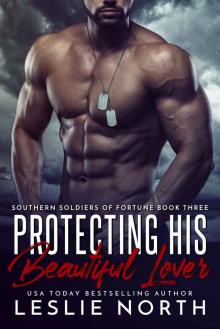 Protecting His Beautiful Lover (Southern Soldiers of Fortune Book 3)
Protecting His Beautiful Lover (Southern Soldiers of Fortune Book 3)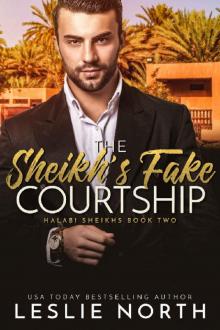 The Sheikh's Fake Courtship (Halabi Sheikhs Book 2)
The Sheikh's Fake Courtship (Halabi Sheikhs Book 2)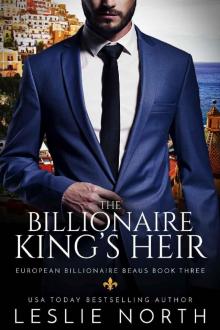 The Billionaire King’s Heir (European Billionaire Beaus Book 3)
The Billionaire King’s Heir (European Billionaire Beaus Book 3)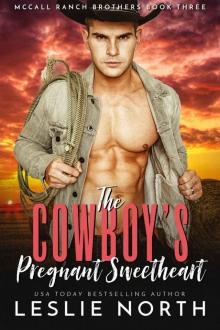 The Cowboy’s Pregnant Sweetheart (McCall Ranch Brothers Book 3)
The Cowboy’s Pregnant Sweetheart (McCall Ranch Brothers Book 3)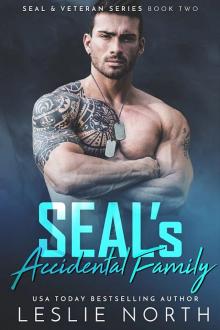 SEAL’s Accidental Family: SEAL & Veteran Series: Book Two
SEAL’s Accidental Family: SEAL & Veteran Series: Book Two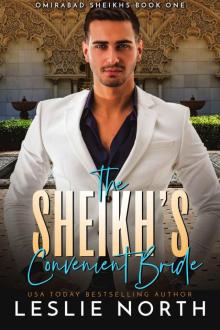 The Sheikh’s Convenient Bride (Omirabad Sheikhs Book 1)
The Sheikh’s Convenient Bride (Omirabad Sheikhs Book 1) Guarding the Single Mother (SEAL Endgame Book 1)
Guarding the Single Mother (SEAL Endgame Book 1)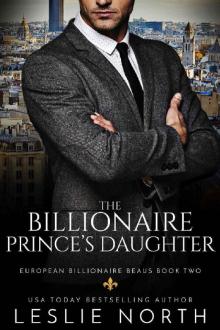 The Billionaire Prince’s Daughter (European Billionaire Beaus Book 2)
The Billionaire Prince’s Daughter (European Billionaire Beaus Book 2)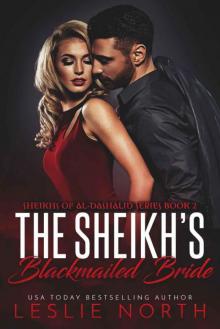 The Sheikh’s Blackmailed Bride (Sheikhs of Al-Dashalid Book 2)
The Sheikh’s Blackmailed Bride (Sheikhs of Al-Dashalid Book 2)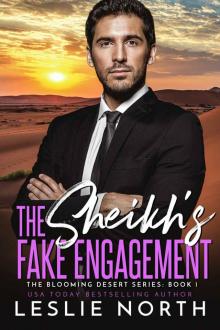 The Sheikh’s Fake Engagement (The Blooming Desert Series Book 1)
The Sheikh’s Fake Engagement (The Blooming Desert Series Book 1)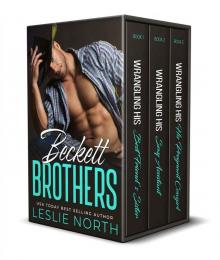 Beckett Brothers: The Complete Series
Beckett Brothers: The Complete Series The Sheikh's Untameable Lover (The Tazeem Twins Series Book 4)
The Sheikh's Untameable Lover (The Tazeem Twins Series Book 4)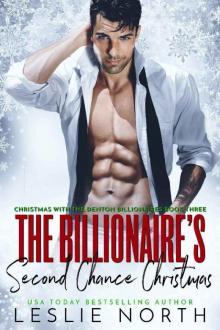 The Billionaire’s Second Chance Christmas (Christmas with the Denton Billionaires Book 3)
The Billionaire’s Second Chance Christmas (Christmas with the Denton Billionaires Book 3)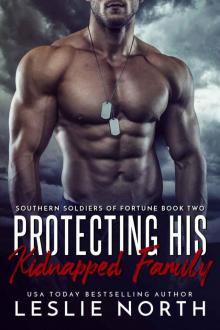 Protecting His Kidnapped Family (Southern Soldiers of Fortune Book 2)
Protecting His Kidnapped Family (Southern Soldiers of Fortune Book 2)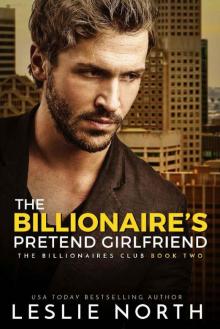 The Billionaire’s Pretend Girlfriend (The Billionaires Club Book 2)
The Billionaire’s Pretend Girlfriend (The Billionaires Club Book 2)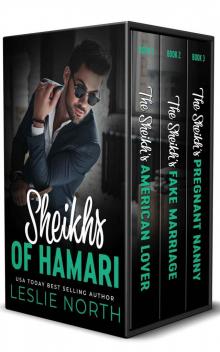 Sheikhs of Hamari: The Complete Series
Sheikhs of Hamari: The Complete Series The Sheikh’s Pregnant Lover (Sheikhs of Al-Dashalid Book 1)
The Sheikh’s Pregnant Lover (Sheikhs of Al-Dashalid Book 1)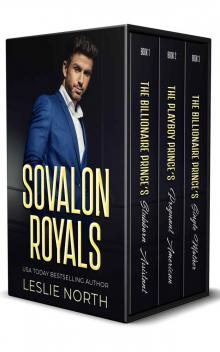 Sovalon Royals: The Complete Series
Sovalon Royals: The Complete Series Hasan Sheikhs: The Complete Series
Hasan Sheikhs: The Complete Series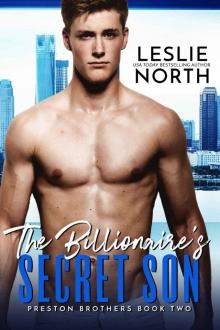 The Billionaire’s Secret Son (Preston Brothers Book 2)
The Billionaire’s Secret Son (Preston Brothers Book 2)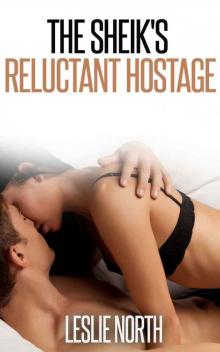 The Sheik's Reluctant Hostage (The Quabeca Sheiks Series Book 2)
The Sheik's Reluctant Hostage (The Quabeca Sheiks Series Book 2)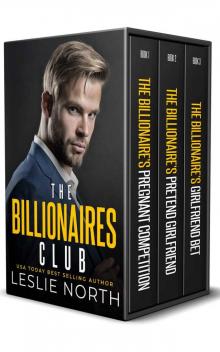 The Billionaires Club- The Complete Series
The Billionaires Club- The Complete Series The Sheikh’s Pregnant Love: The Karawi Sheikhs Series Book Three
The Sheikh’s Pregnant Love: The Karawi Sheikhs Series Book Three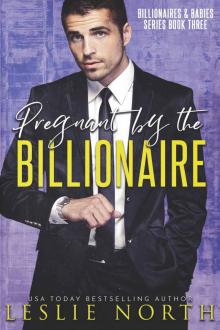 Pregnant by the Billionaire (Billionaires & Babies Book 3)
Pregnant by the Billionaire (Billionaires & Babies Book 3) The Sheikh's Surprise Twins (Qadir Sheikhs Book 1)
The Sheikh's Surprise Twins (Qadir Sheikhs Book 1) The Billionaire’s Sudden Christmas Baby (Christmas With the Denton Billionaires Book 2)
The Billionaire’s Sudden Christmas Baby (Christmas With the Denton Billionaires Book 2)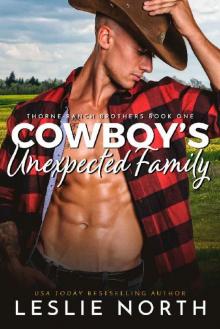 Cowboy's Unexpected Family (Thorne Ranch Brothers Book 1)
Cowboy's Unexpected Family (Thorne Ranch Brothers Book 1)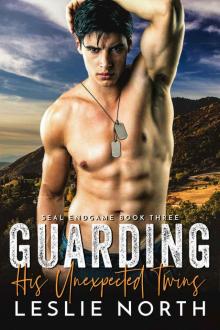 Guarding His Unexpected Twins (SEAL Endgame Book 3)
Guarding His Unexpected Twins (SEAL Endgame Book 3) SEAL & Veteran Series: The Complete Series
SEAL & Veteran Series: The Complete Series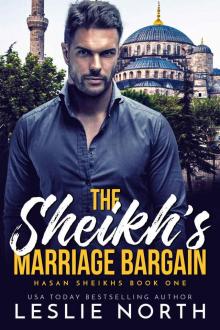 The Sheikh's Marriage Bargain (Hasan Sheikhs Book 1)
The Sheikh's Marriage Bargain (Hasan Sheikhs Book 1)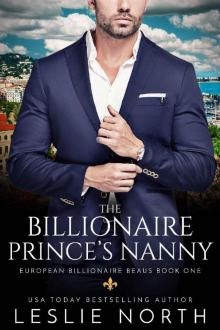 The Billionaire Prince’s Nanny (European Billionaire Beaus Book 1)
The Billionaire Prince’s Nanny (European Billionaire Beaus Book 1)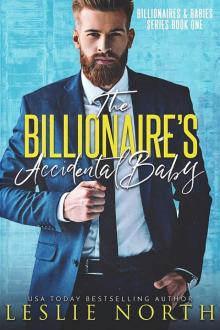 The Billionaire’s Accidental Baby: Billionaires & Babies Book One
The Billionaire’s Accidental Baby: Billionaires & Babies Book One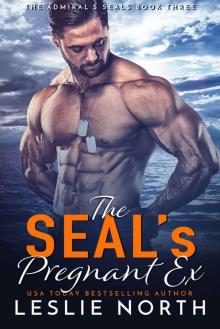 The SEAL’s Pregnant Ex (The Admiral’s SEALs Book 3)
The SEAL’s Pregnant Ex (The Admiral’s SEALs Book 3)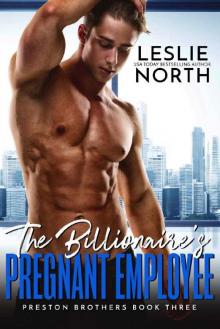 The Billionaire’s Pregnant Employee (Preston Brothers Book 3)
The Billionaire’s Pregnant Employee (Preston Brothers Book 3)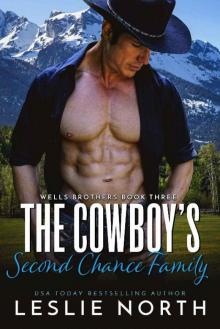 The Cowboy’s Second Chance Family (Wells Brothers Book 3)
The Cowboy’s Second Chance Family (Wells Brothers Book 3)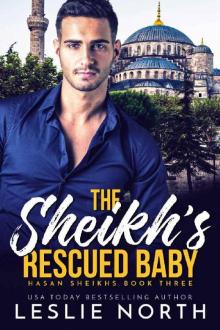 The Sheikh’s Rescued Baby (Hasan Sheikhs Book 3)
The Sheikh’s Rescued Baby (Hasan Sheikhs Book 3)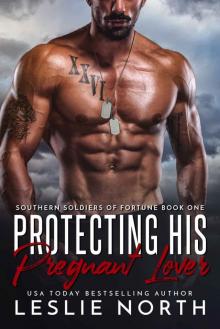 Protecting His Pregnant Lover (Southern Soldiers of Fortune Book 1)
Protecting His Pregnant Lover (Southern Soldiers of Fortune Book 1)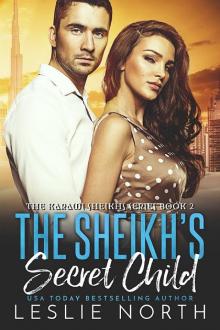 The Sheikh’s Secret Child: The Karawi Sheikhs Series Book Two
The Sheikh’s Secret Child: The Karawi Sheikhs Series Book Two The Sheikh’s Pregnant Foreigner
The Sheikh’s Pregnant Foreigner Sheikhs of Al-Dashalid: The Complete Series
Sheikhs of Al-Dashalid: The Complete Series The Sheikh’s Wife Arrangement: The Safar Sheikhs Series Book One
The Sheikh’s Wife Arrangement: The Safar Sheikhs Series Book One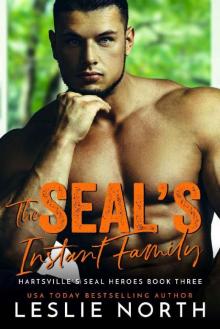 The SEAL’s Instant Family
The SEAL’s Instant Family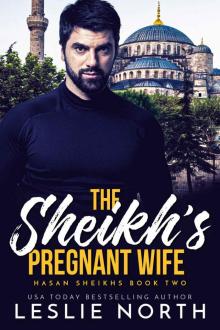 The Sheikh’s Pregnant Wife (Hasan Sheikhs Book 2)
The Sheikh’s Pregnant Wife (Hasan Sheikhs Book 2)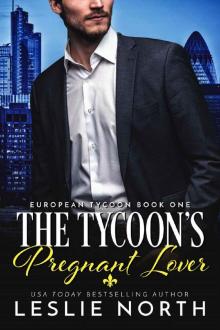 The Tycoon’s Pregnant Lover (European Tycoon Book 1)
The Tycoon’s Pregnant Lover (European Tycoon Book 1)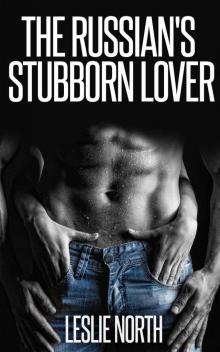 The Russian's Stubborn Lover (The Fedosov Family Series Book 1)
The Russian's Stubborn Lover (The Fedosov Family Series Book 1)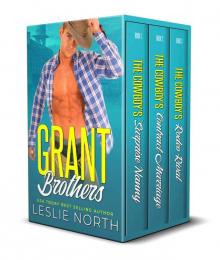 Grant Brothers Series: The Complete Series
Grant Brothers Series: The Complete Series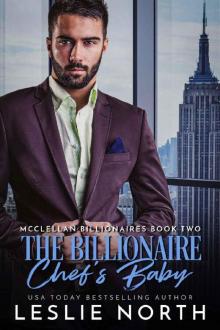 The Billionaire Chef’s Baby (McClellan Billionaires Book 2)
The Billionaire Chef’s Baby (McClellan Billionaires Book 2)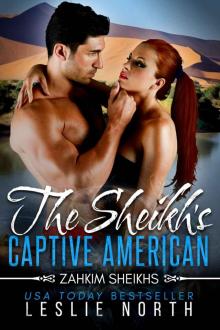 The Sheikh's Captive American (Zahkim Sheikhs Series Book 1)
The Sheikh's Captive American (Zahkim Sheikhs Series Book 1)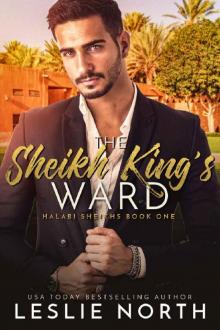 The Sheikh King's Ward (Halabi Sheikhs Book 1)
The Sheikh King's Ward (Halabi Sheikhs Book 1) The Sheikh's Christmas Baby
The Sheikh's Christmas Baby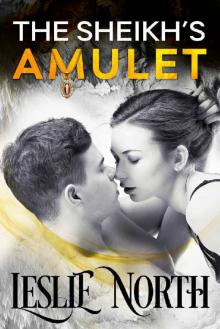 The Sheikh's Amulet (Sheikh's Wedding Bet Series Book 3)
The Sheikh's Amulet (Sheikh's Wedding Bet Series Book 3) The Sheikh’s Accidental Heir (Sharjah Sheikhs Book 2)
The Sheikh’s Accidental Heir (Sharjah Sheikhs Book 2)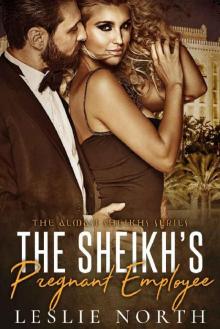 The Sheikh's Pregnant Employee
The Sheikh's Pregnant Employee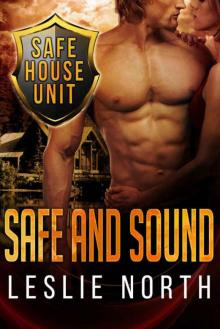 Safe and Sound (The Safe House Series Book 3)
Safe and Sound (The Safe House Series Book 3)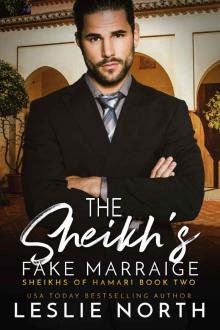 The Sheikh’s Fake Marriage (Sheikhs of Hamari Book 2)
The Sheikh’s Fake Marriage (Sheikhs of Hamari Book 2)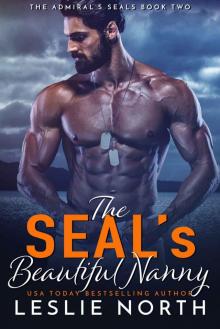 The SEAL’s Beautiful Nanny (The Admiral’s SEALs Book 2)
The SEAL’s Beautiful Nanny (The Admiral’s SEALs Book 2)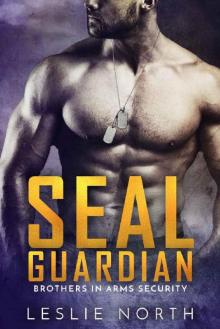 SEAL Guardian (Brothers In Arms Book 3)
SEAL Guardian (Brothers In Arms Book 3)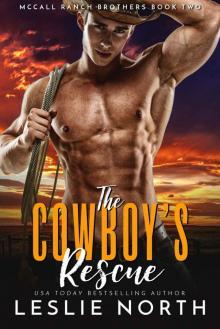 The Cowboy’s Rescue (McCall Ranch Brothers Book 2)
The Cowboy’s Rescue (McCall Ranch Brothers Book 2)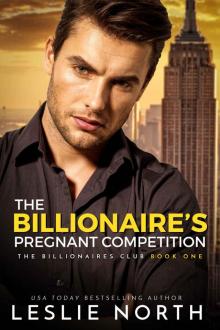 The Billionaire's Pregnant Competition (The Billionaires Club Book 1)
The Billionaire's Pregnant Competition (The Billionaires Club Book 1)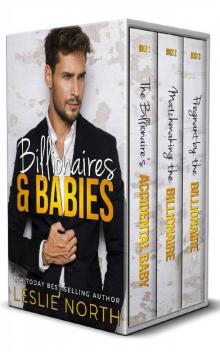 Billionaires & Babies: The Complete Series
Billionaires & Babies: The Complete Series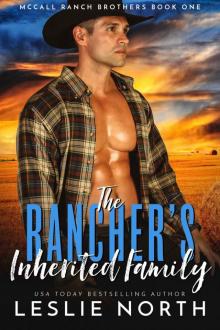 The Rancher’s Inherited Family (McCall Ranch Brothers Book 1)
The Rancher’s Inherited Family (McCall Ranch Brothers Book 1) The Sheikh's Stubborn Lover (The Adjalane Sheikhs Series Book 2)
The Sheikh's Stubborn Lover (The Adjalane Sheikhs Series Book 2)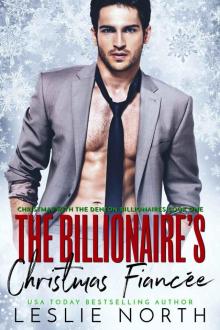 The Billionaire’s Christmas Fiancée (Christmas with the Denton Billionaires Book 1)
The Billionaire’s Christmas Fiancée (Christmas with the Denton Billionaires Book 1)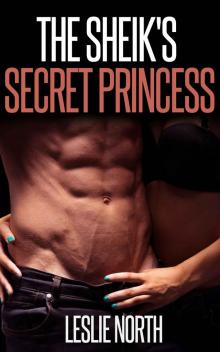 The Sheikh's Secret Princess
The Sheikh's Secret Princess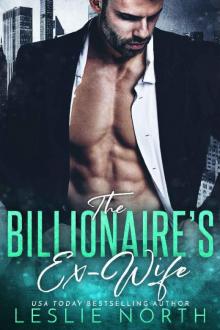 The Billionaire's Ex-Wife (Jameson Brothers Book 1)
The Billionaire's Ex-Wife (Jameson Brothers Book 1)![Ride with the SEAL_Norse Security [Book One] Read online](http://i1.bookreadfree.com/i/03/20/ride_with_the_seal_norse_security_book_one_preview.jpg) Ride with the SEAL_Norse Security [Book One]
Ride with the SEAL_Norse Security [Book One]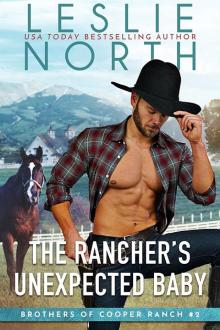 The Rancher’s Unexpected Baby: Brothers of Cooper Ranch Book Two
The Rancher’s Unexpected Baby: Brothers of Cooper Ranch Book Two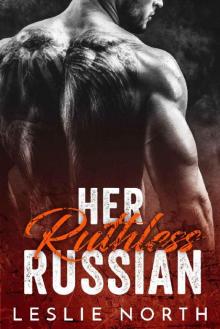 Her Ruthless Russian (Karev Brothers Book 1)
Her Ruthless Russian (Karev Brothers Book 1)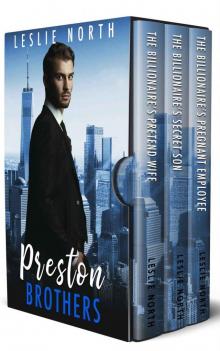 Preston Brothers The Complete Series
Preston Brothers The Complete Series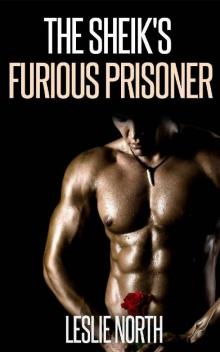 The Sheikh's Furious Prisoner
The Sheikh's Furious Prisoner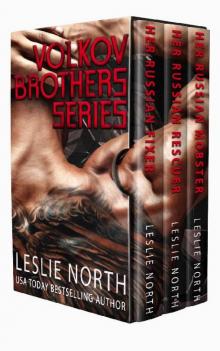 The Volkov Brothers Series: The Complete Series
The Volkov Brothers Series: The Complete Series A Sheikh for Christmas
A Sheikh for Christmas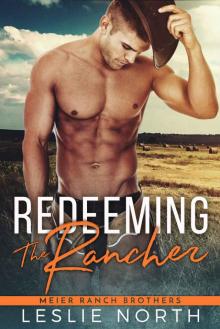 Redeeming the Rancher
Redeeming the Rancher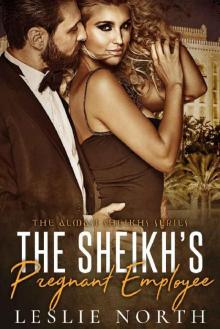 The Sheikh's Pregnant Employee (Almasi Sheikhs Book 3)
The Sheikh's Pregnant Employee (Almasi Sheikhs Book 3)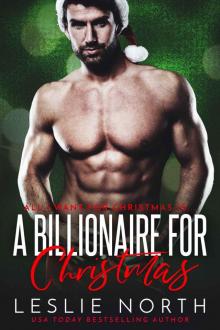 A Billionaire for Christmas
A Billionaire for Christmas The Sheikh's Determined Lover
The Sheikh's Determined Lover The Sheikh's Reluctant American (The Adjalane Sheikhs #3)
The Sheikh's Reluctant American (The Adjalane Sheikhs #3)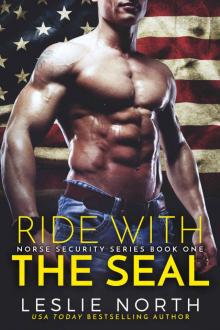 Ride with the SEAL
Ride with the SEAL Zahkim Sheikhs Series: The Complete Series
Zahkim Sheikhs Series: The Complete Series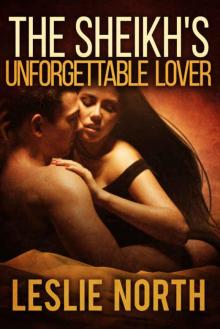 The Sheikh's Unforgettable Lover (The Sharqi Sheikhs Series Book 1)
The Sheikh's Unforgettable Lover (The Sharqi Sheikhs Series Book 1)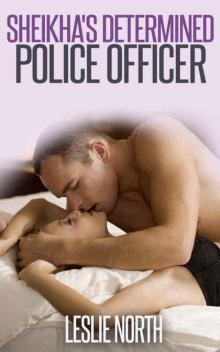 Sheikha's Determined Police Officer (Botros Brothers Series Book 4)
Sheikha's Determined Police Officer (Botros Brothers Series Book 4)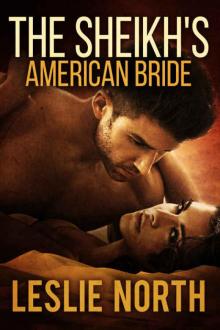 The Sheikh's American Bride (The Sharqi Sheikhs Series Book 2)
The Sheikh's American Bride (The Sharqi Sheikhs Series Book 2)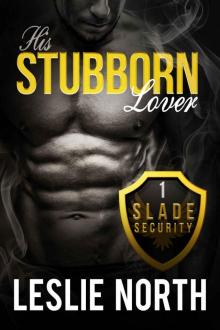 His Stubborn Lover
His Stubborn Lover The Sheikh's Defiant Girlfriend (The Botros Brothers Series)
The Sheikh's Defiant Girlfriend (The Botros Brothers Series)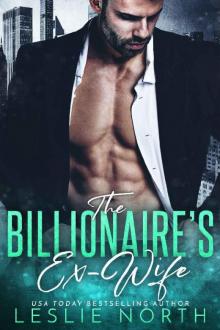 The Billionaire's Ex-Wife
The Billionaire's Ex-Wife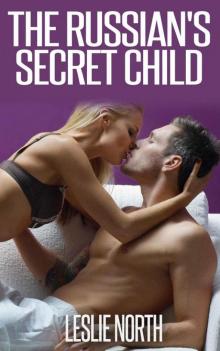 The Russian's Secret Child (The Fedosov Family Series)
The Russian's Secret Child (The Fedosov Family Series)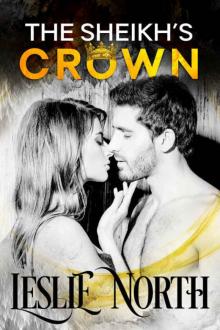 The Sheikh's Crown (Sheikh's Wedding Bet Series Book 2)
The Sheikh's Crown (Sheikh's Wedding Bet Series Book 2) The Sheikh's Unexpected Wife
The Sheikh's Unexpected Wife The Sheikh’s Secret Son (Sharjah Sheikhs Book 3)
The Sheikh’s Secret Son (Sharjah Sheikhs Book 3)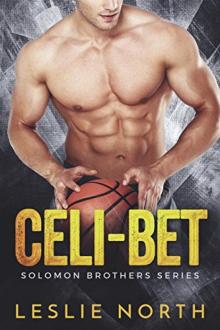 Celi-Bet (Solomon Brothers #2)
Celi-Bet (Solomon Brothers #2)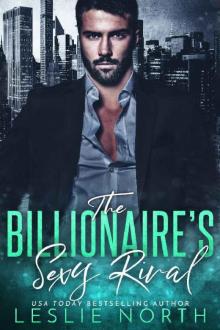 The Billionaire's Sexy Rival (Jameson Brothers Book 3)
The Billionaire's Sexy Rival (Jameson Brothers Book 3) The Sheikh's Christmas Baby (Shadid Sheikhs Series Book 3)
The Sheikh's Christmas Baby (Shadid Sheikhs Series Book 3) Royal Treatment
Royal Treatment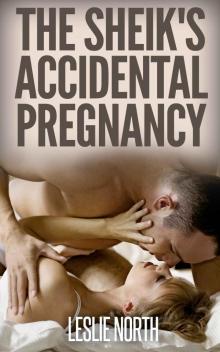 The Sheik's Accidental Pregnancy
The Sheik's Accidental Pregnancy The Sheikh’s Contract Fiancée (Almasi Sheikhs Book 1)
The Sheikh’s Contract Fiancée (Almasi Sheikhs Book 1)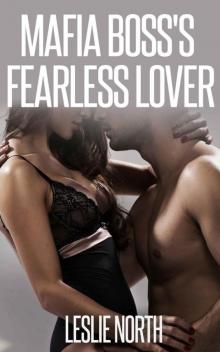 Mafia Boss's Fearless Lover (The Karzhov Crime Family series Book 1)
Mafia Boss's Fearless Lover (The Karzhov Crime Family series Book 1) The Sheikh’s Surprise Heir: The Karawi Sheikhs Series Book One
The Sheikh’s Surprise Heir: The Karawi Sheikhs Series Book One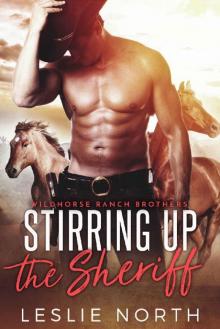 Stirring up the Sheriff (Wildhorse Ranch Brothers Book 3)
Stirring up the Sheriff (Wildhorse Ranch Brothers Book 3)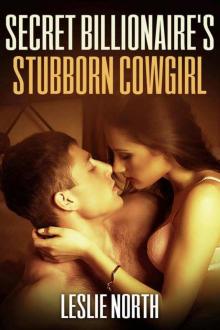 Secret Billionaire's Stubborn Cowgirl (The Secret Billionaires, #1)
Secret Billionaire's Stubborn Cowgirl (The Secret Billionaires, #1)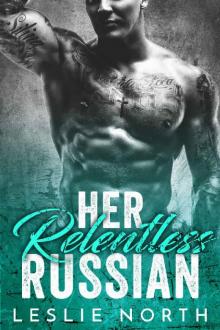 Her Relentless Russian (Karev Brothers Book 3)
Her Relentless Russian (Karev Brothers Book 3)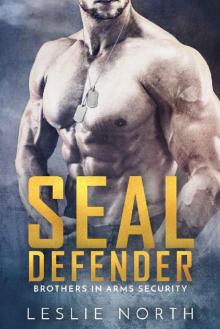 SEAL Defender (Brothers In Arms Book 1)
SEAL Defender (Brothers In Arms Book 1)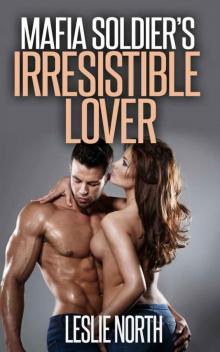 Mafia Soldier's Irresistible Lover (The Karzhov Crime Family Series Book 3)
Mafia Soldier's Irresistible Lover (The Karzhov Crime Family Series Book 3)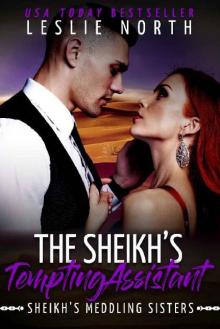 The Sheikh's Tempting Assistant
The Sheikh's Tempting Assistant The Sheik's Desires Boxset
The Sheik's Desires Boxset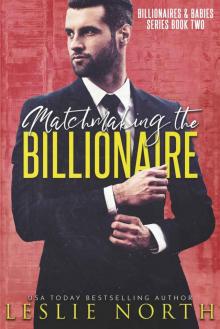 Matchmaking the Billionaire (Billionaires & Babies Book 2)
Matchmaking the Billionaire (Billionaires & Babies Book 2)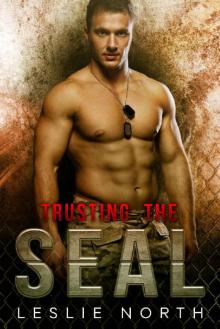 Trusting the SEAL (Saving the SEALs Series Book 3)
Trusting the SEAL (Saving the SEALs Series Book 3) The Sheikh's Christmas Present (Shadid Sheikhs Series Book 2)
The Sheikh's Christmas Present (Shadid Sheikhs Series Book 2)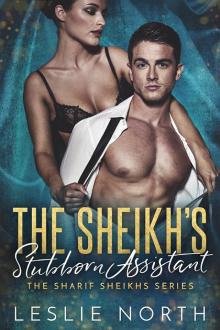 The Sheikh’s Stubborn Assistant
The Sheikh’s Stubborn Assistant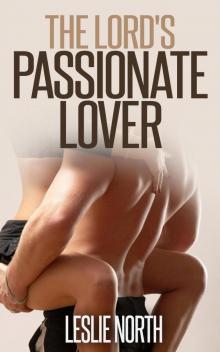 The Lord's Passionate Lover (The Royals of Monaco, #3)
The Lord's Passionate Lover (The Royals of Monaco, #3) The Sheikh’s Forced Bride (The Sharjah Sheikhs Series Book 1)
The Sheikh’s Forced Bride (The Sharjah Sheikhs Series Book 1)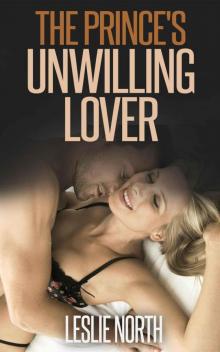 The Prince's Unwilling Lover (The Royals of Monaco Book 1)
The Prince's Unwilling Lover (The Royals of Monaco Book 1) The Sheikh’s Pregnant Fake Wife
The Sheikh’s Pregnant Fake Wife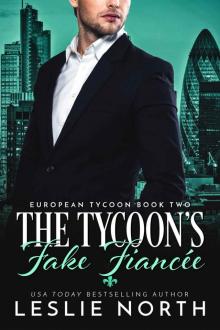 The Tycoon’s Fake Fiancée (European Tycoon Book 2)
The Tycoon’s Fake Fiancée (European Tycoon Book 2) Italian Billionaire’s Stubborn Lover
Italian Billionaire’s Stubborn Lover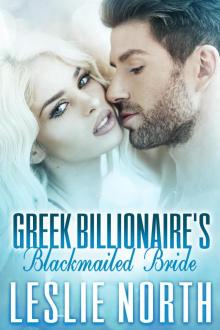 Greek Billionaire's Blackmailed Bride (The Rosso Family Series, #1)
Greek Billionaire's Blackmailed Bride (The Rosso Family Series, #1) The Sheikh's Christmas Maid
The Sheikh's Christmas Maid The Sheikh's Christmas Maid (Shadid Sheikhs Series Book 1)
The Sheikh's Christmas Maid (Shadid Sheikhs Series Book 1) Italian Billionaire’s Unexpected Lover
Italian Billionaire’s Unexpected Lover The Sheikh's Secret Bride
The Sheikh's Secret Bride The Sheikh's Unruly Lover (Almasi Sheikhs Book 2)
The Sheikh's Unruly Lover (Almasi Sheikhs Book 2)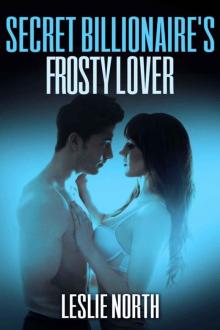 Secret Billionaire's Frosty Lover
Secret Billionaire's Frosty Lover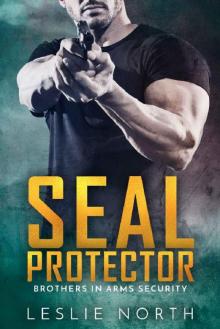 SEAL Protector (Brothers In Arms Book 2)
SEAL Protector (Brothers In Arms Book 2)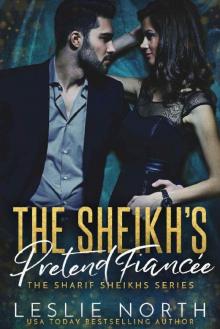 The Sheikh’s Pretend Fiancée
The Sheikh’s Pretend Fiancée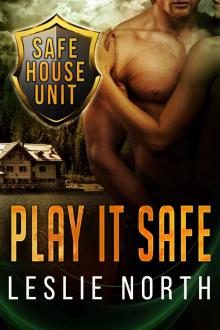 Play It Safe (The Safe House Series Book 2)
Play It Safe (The Safe House Series Book 2)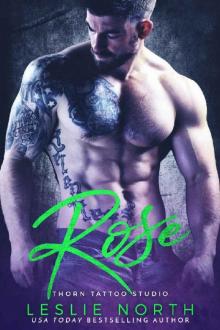 Rose (Thorn Tattoo Studio Book 1)
Rose (Thorn Tattoo Studio Book 1)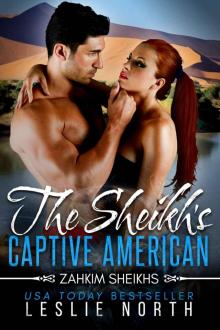 The Sheikh's Captive American
The Sheikh's Captive American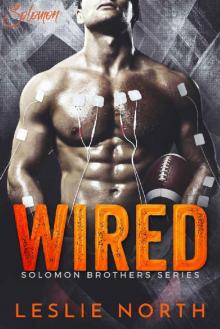 Wired (The Solomon Brothers Series Book 1)
Wired (The Solomon Brothers Series Book 1) The Sheikh's Unexpected Wife (Zahkim Sheikhs Series Book 3)
The Sheikh's Unexpected Wife (Zahkim Sheikhs Series Book 3) The Romano Brothers Series
The Romano Brothers Series The Sheikh's Surprise Triplets (Azhar Sheikhs Book 3)
The Sheikh's Surprise Triplets (Azhar Sheikhs Book 3)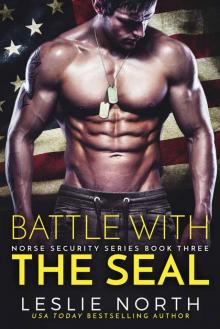 Battle with the SEAL
Battle with the SEAL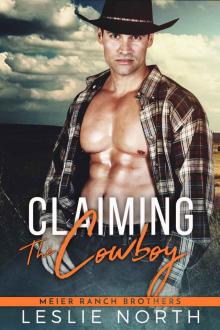 Claiming The Cowboy
Claiming The Cowboy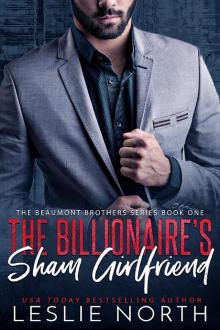 The Billionaire’s Sham Girlfriend: The Beaumont Brothers Book One
The Billionaire’s Sham Girlfriend: The Beaumont Brothers Book One The Sheikh's Unruly Lover
The Sheikh's Unruly Lover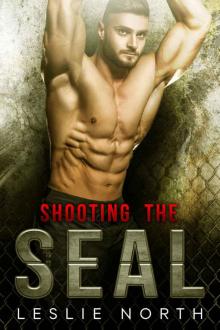 Shooting the SEAL (Saving the SEALs Series Book 1)
Shooting the SEAL (Saving the SEALs Series Book 1)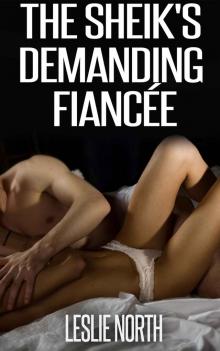 The Sheikh's Demanding Fiancée (The Botros Brothers Series)
The Sheikh's Demanding Fiancée (The Botros Brothers Series)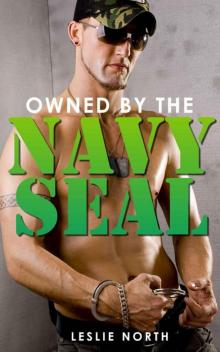 Owned by the Navy Seal
Owned by the Navy Seal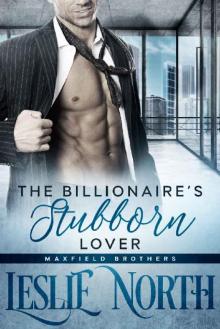 The Billionaire’s Stubborn Lover (The Maxfield Brothers Series Book 3)
The Billionaire’s Stubborn Lover (The Maxfield Brothers Series Book 3) The Sheikh's Fiery Lover (The Tazeem Twins Series Book 2)
The Sheikh's Fiery Lover (The Tazeem Twins Series Book 2)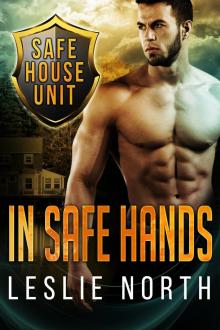 In Safe Hands (The Safe House Series Book 1)
In Safe Hands (The Safe House Series Book 1) The Sheikh's Pregnant Fling (Azhar Sheikhs Book 2)
The Sheikh's Pregnant Fling (Azhar Sheikhs Book 2) The Sheikh's Christmas Present
The Sheikh's Christmas Present Royal Service
Royal Service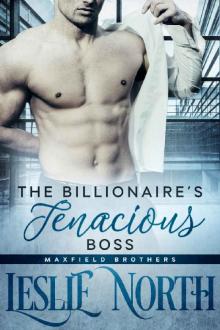 The Billionaire’s Tenacious Boss (The Maxfield Brothers Series Book 1)
The Billionaire’s Tenacious Boss (The Maxfield Brothers Series Book 1)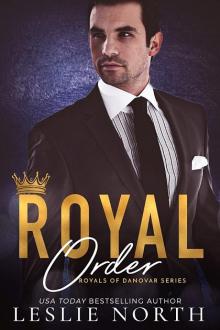 Royal Order
Royal Order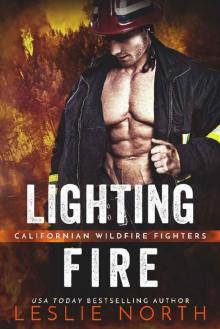 Lighting Fire
Lighting Fire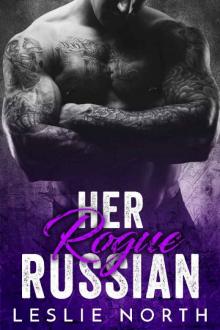 Her Rogue Russian (Karev Brothers Book 2)
Her Rogue Russian (Karev Brothers Book 2)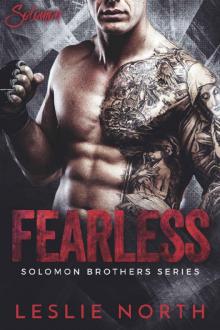 Fearless (The Solomon Brothers Series Book 3)
Fearless (The Solomon Brothers Series Book 3)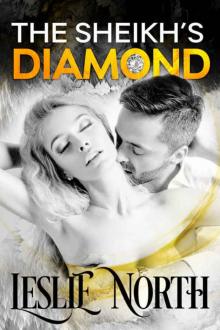 The Sheikh's Diamond (Sheikh's Wedding Bet Series Book 1)
The Sheikh's Diamond (Sheikh's Wedding Bet Series Book 1)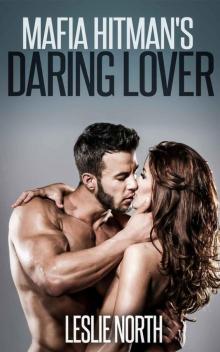 Mafia Hitman's Daring Lover
Mafia Hitman's Daring Lover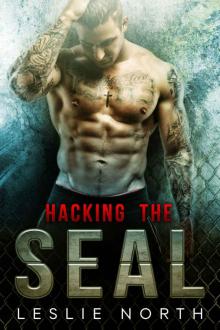 Hacking the SEAL (Saving the SEALs Series Book 2)
Hacking the SEAL (Saving the SEALs Series Book 2)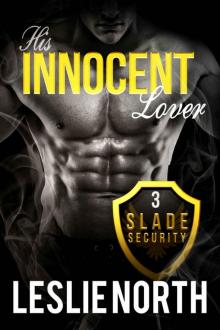 His Innocent Lover (Slade Security Team Series Book 3)
His Innocent Lover (Slade Security Team Series Book 3)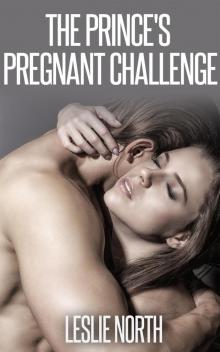 The Prince's Pregnant Challenge (The Royals of Monaco, #2)
The Prince's Pregnant Challenge (The Royals of Monaco, #2)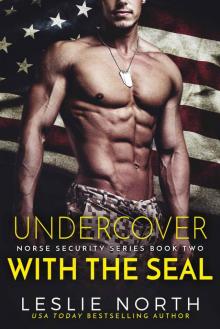 Undercover with the SEAL
Undercover with the SEAL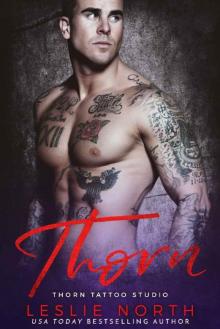 Thorn (Thorn Tattoo Studio Book 2)
Thorn (Thorn Tattoo Studio Book 2)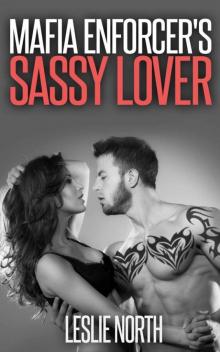 Mafia Enforcer's Sassy Lover (The Karzhov Crime Family Series Book 4)
Mafia Enforcer's Sassy Lover (The Karzhov Crime Family Series Book 4) The Sheikh's Pregnant Bride (The Jawhara Sheikhs Series Book 1)
The Sheikh's Pregnant Bride (The Jawhara Sheikhs Series Book 1)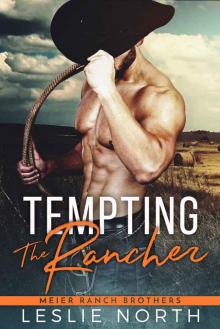 Tempting the Rancher
Tempting the Rancher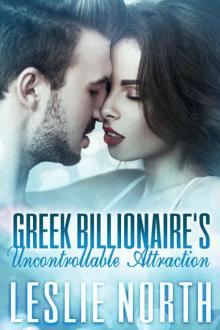 Greek Billionaire's Uncontrollable Attraction (The Rosso Family Series Book 3)
Greek Billionaire's Uncontrollable Attraction (The Rosso Family Series Book 3) The Sheikh’s Island Fling
The Sheikh’s Island Fling![Battle with the SEAL_Norse Security [Book Three] Read online](http://i1.bookreadfree.com/i2/04/11/battle_with_the_seal_norse_security_book_three_preview.jpg) Battle with the SEAL_Norse Security [Book Three]
Battle with the SEAL_Norse Security [Book Three] The Sheikh’s Contract Fiancée
The Sheikh’s Contract Fiancée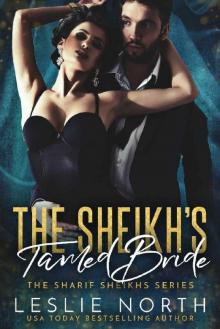 The Sheikh’s Tamed Bride
The Sheikh’s Tamed Bride The Sheikh’s Island Fling_Sheikh's Meddling Sisters_Book Two
The Sheikh’s Island Fling_Sheikh's Meddling Sisters_Book Two The Sheikh's Troublesome Bride
The Sheikh's Troublesome Bride A SEAL for Christmas
A SEAL for Christmas The Sheikh's Determined Lover (Zahkim Sheikhs Series Book 2)
The Sheikh's Determined Lover (Zahkim Sheikhs Series Book 2) The Sheikh’s Fake Fiancée (Azhar Sheikhs Book 1)
The Sheikh’s Fake Fiancée (Azhar Sheikhs Book 1)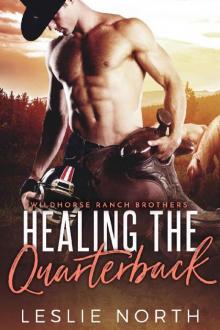 Healing the Quarterback (Wildhorse Ranch Brothers Book 2)
Healing the Quarterback (Wildhorse Ranch Brothers Book 2) The Sheikh's Resisting Lover (The Tazeem Twins Series Book 3)
The Sheikh's Resisting Lover (The Tazeem Twins Series Book 3)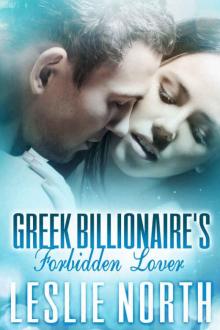 Greek Billionaire's Forbidden Lover (The Rosso Family Series Book 2)
Greek Billionaire's Forbidden Lover (The Rosso Family Series Book 2)![Undercover with the SEAL_Norse Security [Book Two] Read online](http://i1.bookreadfree.com/i2/04/11/undercover_with_the_seal_norse_security_book_two_preview.jpg) Undercover with the SEAL_Norse Security [Book Two]
Undercover with the SEAL_Norse Security [Book Two]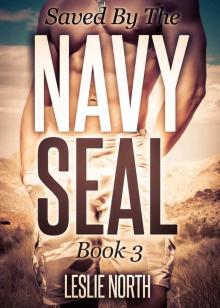 Rescued by the Navy Seal
Rescued by the Navy Seal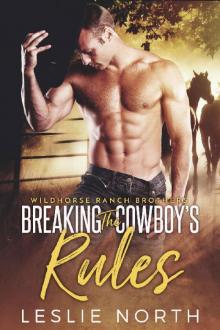 Breaking the Cowboy's Rules (Wildhorse Ranch Brothers Book 1)
Breaking the Cowboy's Rules (Wildhorse Ranch Brothers Book 1)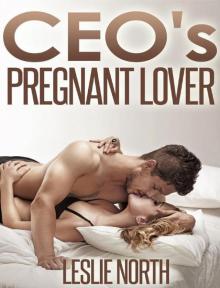 CEO's Pregnant Lover
CEO's Pregnant Lover Royals of Danovar: The Complete Series
Royals of Danovar: The Complete Series The Sheikha's Forbidden Lover (The Tazeem Twins Series Book 5)
The Sheikha's Forbidden Lover (The Tazeem Twins Series Book 5)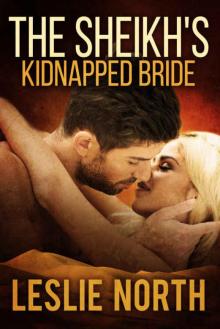 The Sheikh's Kidnapped Bride (The Sharqi Sheikhs Series Book 3)
The Sheikh's Kidnapped Bride (The Sharqi Sheikhs Series Book 3)